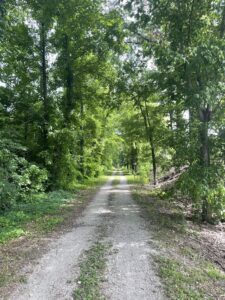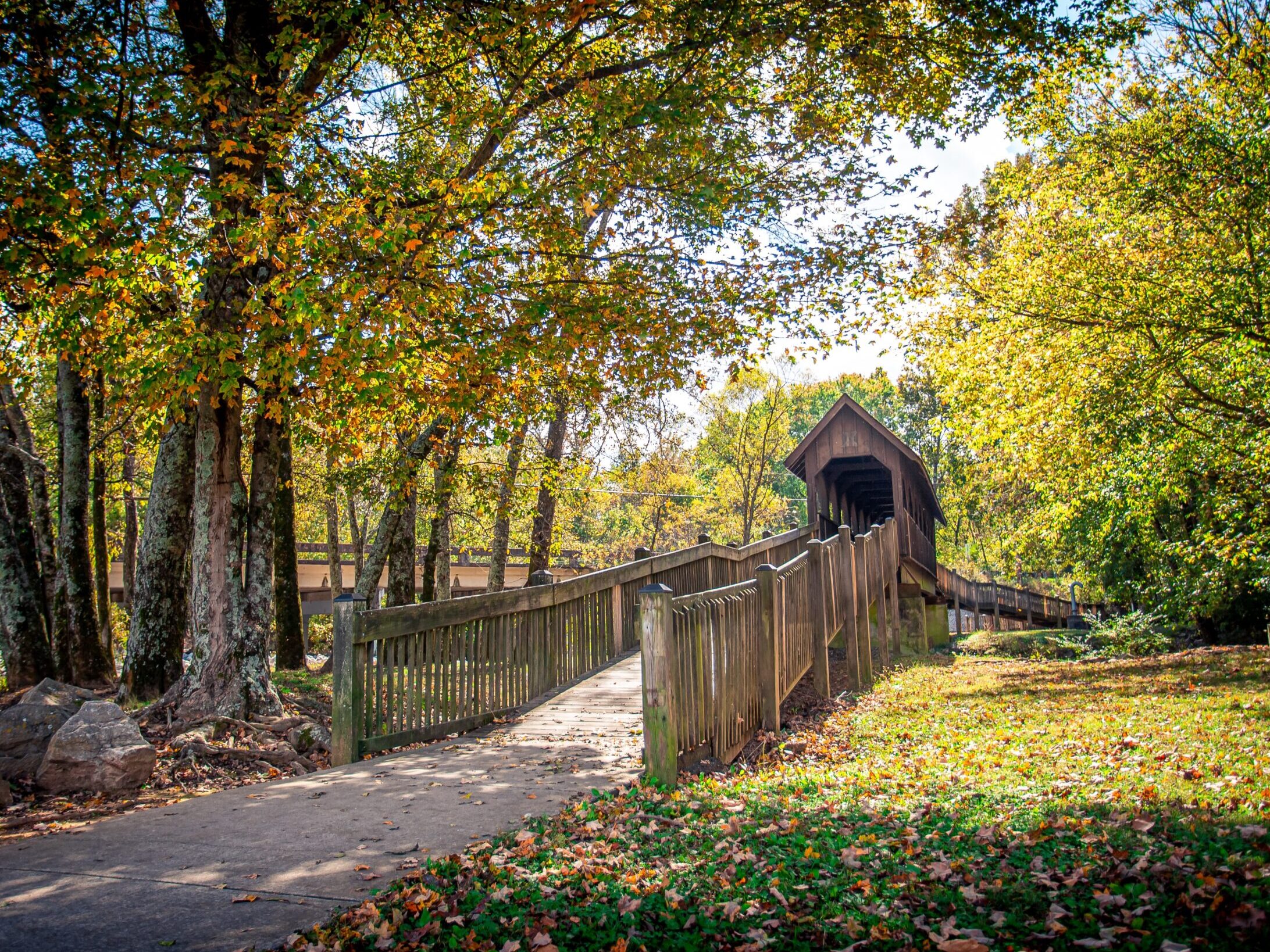Richard Martin sits on his porch with a mug of hot tea, the smell of fresh cut hay in the air, looking out to the trail that shares his name.
“Being able to see the trail from my porch, it’s pretty special,” he says.
The Richard Martin Trail travels through over 10 miles of rural northern Alabama countryside. It is part of the Rails-to-Trails network, which converts old railway lines into trails for walking, running, biking, and horseback riding. The trail’s namesake, Richard Martin, is a local historian and preservationist who continues to advocate for the improvement and extension of the trail – and as a guiding light for trail development across the state.
The trail, which was more than a 25 year effort led by Martin, accesses outstanding natural, cultural, and historic resources. “I had the right people, who were like minded and wanted the same things, and who love the outdoors,” says Martin.

(Singing River Trail/Contributed)
Martin has worked tirelessly for the trail’s growth – not only for the arduous process of expanding his own trail, but supporting the idea for the trail to become a part of a larger initiative – The Singing River Trail, a visionary multi-county project that connects communities across North Alabama.
The building process took time, effort, and countless volunteers and advocates – and it began with the Athens Roadrunners Club. Their first major project was to build a 1.5 mile trail around Athens High School; the trail became so popular that they soon had to install lights for night walkers and runners.
In 1988, the club began looking for other ways to build trails in Limestone County, and soon caught momentum by partnering with the Rails to Trails Conservancy (RTC), a national nonprofit that focuses on transforming abandoned or unused railway corridors into multi-use public trails for walking, cycling, and hiking.

(Singing River Trail/Contributed)
The next decade brought about a succession of meetings, negotiations, and fundraising projects, including a “Blaze the Trail with Pennies” fundraiser that raised $16,000 – 1.6 million pennies from classrooms in Athens and Limestone County. The efforts paid off, and by 1996, the first phase of the project was completed: 3.3 miles of trail, beginning in downtown Elkmont and running through the historically significant Civil War Battle of Sulphur Creek Trestle.
Another crucial fundraising component came from selling oil prints by Lyn Stone, a local artist who depicted stories and events from Limestone County.
After a series of grants and fundraisers, and because of his tremendous dedication to the project, the trail was officially named “The Richard Martin Trail” by the Limestone County Parks and Recreation Board on June 1, 2002 – which also happens to be National Trail Day.
Martin humbly refuses to take full credit, and recalls the tireless efforts of his community. “I had the right people, who were like minded and wanted the same things – who love and appreciate the outdoors,” he says.
The trail continued to take shape through the 2000s, reaching its completion in March of 2009 with a celebratory vine cutting and Martin leading the way, who shepherded the trail process from the very start. He continues to celebrate the joy and necessity of trail building from his porch, as he watches people enjoy the trail by foot, bike, and horse.
When asked why he feels that trail building is an important part of our state, he reflects on how nature can act as a remedy for mental health. Whether walking with friends, family, or alone, time spent on a trail can be incredibly healing – no matter your stage of life. “Everyone enjoys the trail, from mothers pushing babies, high school students, or grandparents,” Martin says. “And sometimes you need to go for a run to get the frustration out of you.”
He is thrilled that his namesake’s trail has become a part of a greater trail network, The Singing River Trail, which will be a 200+ mile greenway system that strengthens regional bonds while creating new health and wellness, educational, economic, tourism, and entrepreneurial opportunities for the people and communities of North Alabama. The goal of the Singing River Trail is to connect Martin’s trail to Athens Swan Creek Greenway – almost 20 miles through Athens and LImestone County – taking trail users from the Tennessee state line all the way to Highway 72 in Athens.
“It’s really much bigger than myself,” Martin reflects. “The work ahead, what we’ve yet to accomplish, it’s really exciting.”




